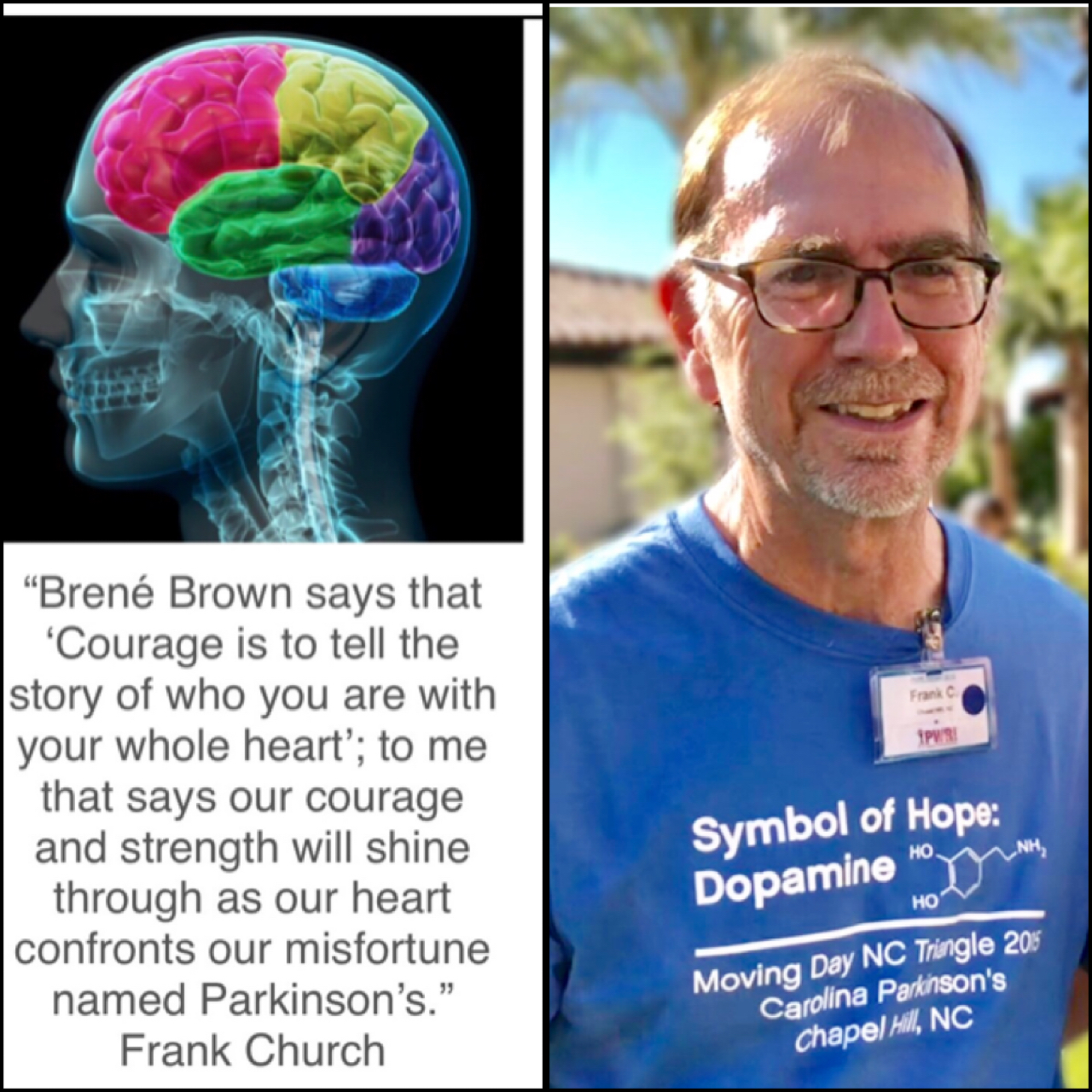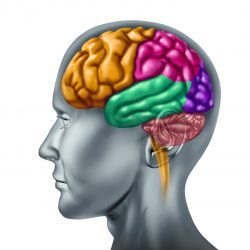“Our illness is often our healing.” Mooji
“Life was always a matter of waiting for the right moment to act.” Paulo Coelho
The Beginning of the Thought: I was at the driving range recently hitting golf balls. And this guy walks by wearing a T-shirt that said: “Always on, Never off.” It struck me as something that would fit a thought/description of my Parkinson’s. It came to me that maybe it could be a property of my Carbidopa/Levodopa, but in reality, its notorious for on-off periods. Nonetheless, the phrase was stuck in my brain; a few months later here it is still. Working on organizing my fall semester undergraduate course (actually, trying to solve a University computer-program access issue for the students to download lectures); this 4-word thought returned to the present.
“A healthy attitude is contagious but don’t wait to catch it from others. Be a carrier.” Tom Stoppard
Always, With Parkinson’s: I remain steadfast in trying to resist the stranglehold of this disorder. I keep hopeful and positive, which is preferable to dismal and negative. I refuse to give up. I may bend in the throes of this battle; however, there is still much to live for, work for, and love for, so I keep going. These words are simple. They remind me (us) what positive forces we have around us to bolster our effort. Alternatively, these short reinforcing phrases might simply make one smile.
ALWAYS, WITH PARKINSON’S
Always on, Never off.
Always up, Never down.
Always active, Never sedentary.
Always thinking, Never a dullard.
Always loving, Never hateful.
Always positive, Never negative.
Always hopeful, Never discouraged.
Always persistent, Never irresolute.
Always happy for today, Never resentful.
Life with Parkinson’s: Always on, Never off.
Words are made better with an image (click here to view/download picture).
Five Years In: I will celebrate my 65th birthday this week. This means I received my diagnosis 5 years ago, after a 2-year period of Physician-pondering to determine it was Parkinson’s, and the latest research would suggest I’ve had Parkinson’s for 20-something years (It just doesn’t ‘happen’ overnight). What does it mean? Still mad-as-hell, but thankful that it’s not ALS, Alzheimer’s, or Huntington’s; the relatives to Parkinson’s as neurodegenerative disorders. Like you, many new ‘issues’ occur with Parkinson’s, not that I didn’t have ‘issues’ before.
However, a line was drawn between my brain and the unwelcomed guest/pest named Parkinson’s; and like you, it’s a daily contest to see where that line is located. Some days, we’re at peace and at a safe-distance from one another. Other days, I feel like my guest has gained a foothold and is digging in to do some devious feat. While other days, it seems like I’ve got the upperhand [e.g., I played 18 holes of golf yesterday; okay, we called it ‘speed golf’ because we played and walked 18 holes in 3 hr and 20 min (started at 4:30 PM and finished at 7:50 PM)]. Thus, five years in knowing its Parkinson’s, I am trying my hardest to stay me. Grateful for so much, so many people and life-events. Life with Parkinson’s is not trivial; thus, I’m very thankful for all of the help/support by so many because it helps make my life’s journey manageable and very happy. And I hope all of you remain committed against your own unwelcomed guest. We are united by our disorder, stay hopeful, stay persistent, and please stay you.

“We are coming to understand health not as the absence of disease, but rather as the process by which individuals maintain their sense of coherence (i.e., sense that life is comprehensible, manageable, and meaningful) and ability to function in the face of changes in themselves and their relationships with their environment.” Aaron Antonovsky



Not sure AD and HD et al are so distant. In fact, as AD commands more funding, I cling to the hope that a collaborative and probably serendipitous, breakthrough will eradicate the entire lot! Some list a group of synucleinopathies. Most money has gone down the pharmaceutical “rabbit hole”. Apparently the ROI isn’t working for the victims but is lucrative for the researchers, practitioners and manufacturers. Some promise has existed under the physics umbrella e.g. EMFs. However, it has stalled for an extended period, commensurate with career researchers at e.g. Harvard.
David Ponsonby
LikeLiked by 1 person
David, thanks for your thoughtful note. The likeness of PD, HD, and ALS, along with all the other synucleinopathies and ataxias is quite scary (I did go back in and removed the word ‘distant’); yet, what I really meant to say was that we have achieved the most therapies for Parkinson’s. I do agree that ANY advancement in our understanding of any of these disorders helps all of the others. Having had NIH funding for many years of my academic career, the funding pie is sliced a lot toward the numbers of people affected by each disease; thus, NIH has a lot of money for cardiovascular diseases and cancers. Within those categories, money is broken down further by #’s, again, a lot more money for breast cancer compared to pancreatic cancer, and more money for arterial problems versus venous problems. Saying that the pool of funds for Alzheimer’s far outweighs that for all other neurodegenerative disorders, but NIH can defend that simply due to the huge number of people with Alzheimer’s, then followed by Parkinson’s, ALS, HD, etc. I do think many academic projects are doing well in PD laboratories, and I have no clue about the industry. I am most hopeful for those institutes combining both basic science and clinical research (e.g., Parkinson’s Institute and Clinical Center in California). Academic research is such an amazing process, so hard to describe and to defend. However, so many major advances have and do evolve from the ivory towers of academics, it is just the incremental advances that happen, not usually the home run. I still think the formula works for the NIH, and right now, more proposals are actually getting NIH funding than of recent years. Thanks for your note, it inspires me to keep working harder, Frank
LikeLike
Thank you Frank! Your blogs always hit home runs with us. Just returned from UCSF with the information that DBS was not an option. So much hope was placed on an option that is not now an option, that I now have to reassure everyone around us, as well as myself, that this is not the end. I love “Always on/ Never off”! Thank you! Kathay Smith Wyman’s wife
Sent from my iPhone
>
LikeLiked by 1 person
Thank you Kathay, appreciate the kind remarks about the blog. I’m so sorry to hear your news about the DBS option, certainly changes the landscape somewhat. However, saying that we keep hearing of novel treatment strategies and new therapies in the pipeline for PD (including the stem cell clinical trial just recently approved in Japan). You’ve not reached an end, you’ve reached a new fork (or kink) in the road; hopefully, new possibilities will become apparent very soon. Take care and best wishes, Frank
LikeLike
Thanks for your blog, it gives me a lot of encouragement as it is positive and proactive.
LikeLiked by 1 person
Craig, thanks so much for your comments; I am really glad the blog provides you with encouragement. By writing the blog and learning about PD it keeps me focused, positive, and hopeful. Take care, Frank
LikeLike
Hi Frank,
Just to let you know that your ‘broadcasts’ reach around the world.
My first career as a professional engineer makes me appreciate your masterful and persistent search for the true and the plausible as you pick apart the Parkinson’s (and related) literature. Come to think on it, my second career, wrestling in the conceptual swamp of the social sciences (as an organisation consultant), has very much sharpened that appreciation!
You have provided me with a clean, filtered and condensed view of the PD-related research information ‘out there’. This is a very valuable thing you do. Thank you.
I am now 70, diagnosed about 5 years ago and managing PD with a modest dose of meds and a good dose of running – and functioning in the face of change, just like anybody else.
LikeLiked by 1 person
Thank you, Barry, appreciate your comments a lot! Going from an engineer to an organizational consultant must have been a truly interesting career-life?! I told my undergraduate class the other day that I’ve been in college since 1971 [3 schools, 3 degrees (BS, MS, PhD), 2 postdoctoral fellowships], and a single career in academic medicine at 1 school since 1982. I write the blog because I want to learn more about Parkinson’s and if others learn as well, it helps to complete a cycle-of-awareness, and that’s a good thing. So I’m really glad my ‘broadcasts’ reach you and others because I’ve got a lot more to write about (just need to find some extra time around/outside of work). Take care, keep running and best wishes, Frank
LikeLike
Thanks for the wonderful blog. I am your regular reader.
Have you done some research on effectiveness of an African plant Iboga for Parkinson? I know some individuals who are benefitting from it and it has helped them to live almost normal life. I too am trying trying it but have not found my optimal dose yet. This drug is primarily used for treatment of drug addiction but it’s micro dosing has been found beneficial in PD
LikeLike
Thank you for the beautiful words Mr. Church. You are an inspiration. God bless!
LikeLike